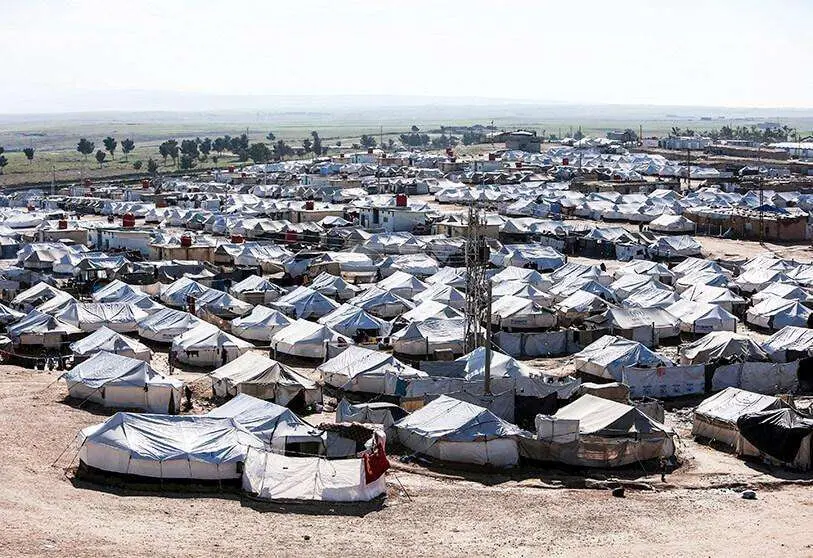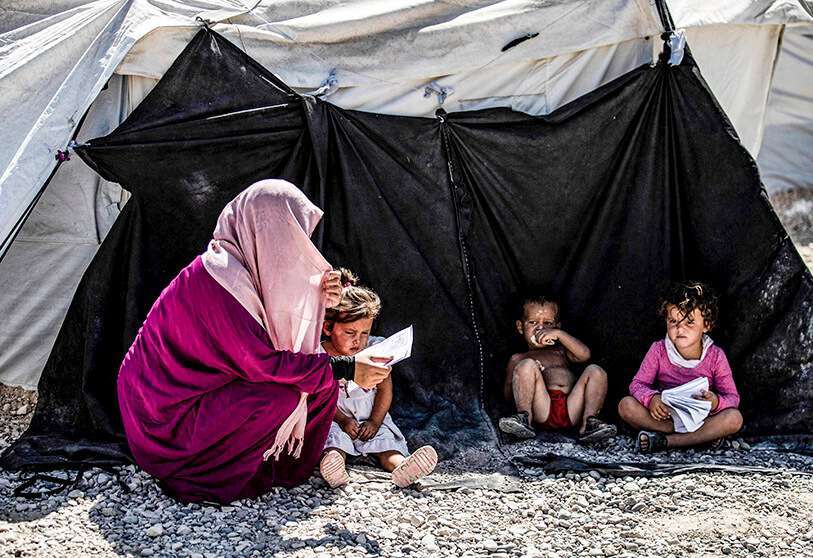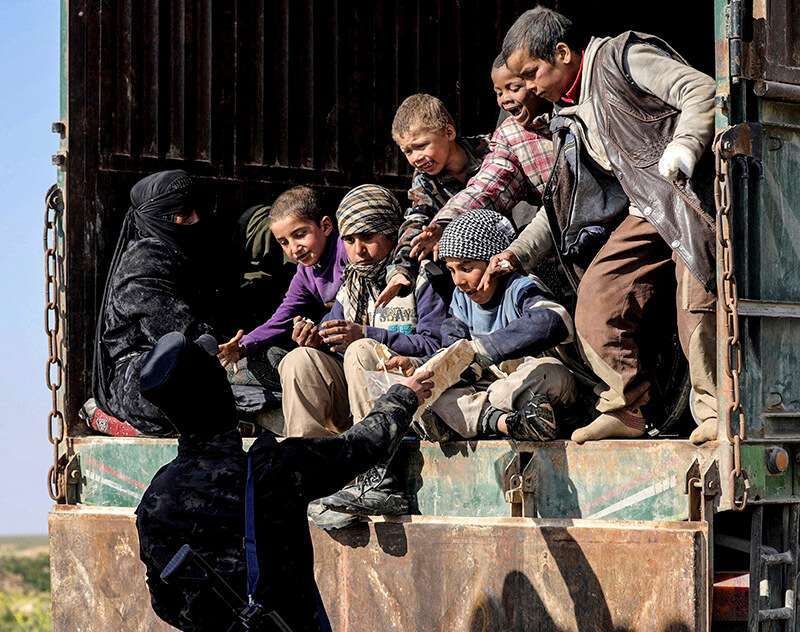Kurdish militias carry out anti-jihadist attack in northern Syria

Kurdish militias have carried out an attack in northern Syria, specifically in the Al-Hol IDP camp. An NGO recently reported the presence of dozens of people belonging to the Daesh terrorist organisation. The Syrian Democratic Forces (SDF) operation arrested a large group of such people, "suspected of supporting Daesh", while "around thirty women and men were arrested", according to the Syrian Observatory for Human Rights. In addition, the Kurdish-led force plans to continue offensives backed by the US-led international anti-jihadist coalition.
The conflict is focusing on a region that currently has a population of more than 62,000 people, up to 93 per cent of whom are women and children. The United Nations (UN) has warned on numerous occasions of the dangerous situation in Al-Hol. At least 40 people have been killed since the beginning of this year, according to data compiled by the OSDH. Observers describe the region as a "jihadist powder keg", a region that lives under the shadow of a jihadist threat that puts the lives of tens of thousands at risk, and which leads to preventive operations such as the one carried out by the Syrian Democratic Forces, described by the Syrian Observatory for Human Rights as "an important security operation (...) against the Daesh organisation".

Colonel Wayne Marotto, spokesman for the international coalition, stated that the offensive is being carried out with the intention of "hindering the activities of Daesh in the camp to ensure the safety of its residents". However, the instability affects precisely all the citizens who see their homes surrounded by attacks between the two sides, while they continue to be the main victims of the various operations.
Kurdish militias point to Daesh terrorists as responsible for the multiple murders perpetrated since the beginning of 2021. One of the far-reaching consequences of these incidents has been the withdrawal and cessation of all activity by Médecins Sans Frontières (MSF), due to the murder of one of its volunteers who was living in the region with his family. However, local sources indicate that several of these killings could be due to tribal clashes between the camp residents themselves because of internal disputes. For its part, Daesh denounces bloody attacks in Syria and even in certain regions in Afghanistan. After the SDF announced the fall of Daesh's "caliphate" two years ago - on 23 March 2019 - with the capture of its last stronghold in Baghouz, the situation has escalated and tensions have reached a point where the international community is on edge, with the possibility of toughening offensives such as those being carried out jointly by several Kurdish militias, SDF and YPG (People's Protection Units) and the local police.

To all this must be added the more than 110,000 jihadists held in Kurdish prisons located in the Syrian country, according to data from the United Nations. Precisely, "some detainees perceive Al-Hol as the last vestige of the 'caliphate'", in addition to the fact that "there have been reports of radicalisation, training, fundraising and incitement to external operations", according to the UN report on the situation surrounding the conflict. What is really dangerous, according to the UN report, is that "some minors are said to be brainwashed and groomed to become future fighters".
European countries are reluctant to repatriate citizens from their countries, something that is perceived in a very negative way by the Kurdish community, since "the danger of Daesh continues to be the thousands of detainees and the thousands of families in the camps of Al-Hol and Roj who maintain the extremist ideology", say the Syrian Democratic Forces. But if there is one thing they are unhappy about, it is "the lack of action on the international stage to resolve this problem", which is prolonging a conflict that has 62,000 people in the middle of it all.








